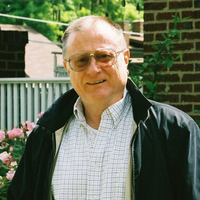Bright Lights in a World of Darkness
More than 30 years ago the Supreme Court in the United States ruled that if individuals are mentally ill but not criminally insane they cannot be confined to asylums. They must be allowed to live in the general population. The results of that decision over the years have met with mixed success in different areas of the country. Some folks who might otherwise be confined get along well living on their own. Others do not.
In some states, depending on the gravity of the illness, some of the mentally ill live in small hotels not specifically designed for their needs. A number of the other residents may be alcoholics, or addicts, or people going through a divorce or some other major difficulty. Some have serious problems that fail to qualify as mental illness but they are difficult to live with. Getting along with mentally ill neighbors can be difficult for both sides.
In certain states some of the mentally ill live in what are generically called "rest homes,” a term often used elsewhere in the country as places where the aged reside because of some physical illness. These two “rest homes” are very different in a variety of ways based on the needs of their populations.
Other states, however, make no local provision for their mentally ill. Certain towns and small cities, however, give their mentally ill some money and put them on buses to New York or some other big city. This is euphemistically called “bus counseling.”
In states that provide rest homes, many of the mentally ill residents understandably lead lonely lives. The exception, however, is often during the Christmas season when volunteers try to bring a little joy into the lives of the residents. Sometimes joy happens but is gone and forgotten by December 26.
Such is the case in one small city where for the last three years Bill (last name withheld at his request) has arranged to take a busload of mentally ill residents from a rest home to see a Christmas display of lights in a nearby big city. Making the trip happen is quite a chore, physically and emotionally, for Bill and his helpers but it is enjoyed by many of the residents. Many of them are ignored the rest of the year so the trip is an annual highlight.
Before Bill began this effort, there was was another volunteer named Andy, now elderly and retired, who remembers visiting the rest homes at Christmas, bringing small gifts and nice things to eat. He recalls how the residents would run and tear fruit sacks open as soon as the volunteers got through the door. The gifts were usually fruit or candy, neither of which the residents would normally receive at other times of the year.
When Andy and his fellow volunteers were making their Christmas visits, residents were receiving $25 a month from the state in addition to their room and board. Out of that $25, they were expected to purchase clothing, hair cuts and whatever else they might need. Many, due to a long-ingrained habit, purchased cigarettes. As a result, Andy remembers their hair and clothing suffered and when they were seen in public on rare occasions, their appearance disturbed folks enjoying normal lives.
Andy also remembers that many of the residents were desperate for company. Someone to talk to was always appreciated. He and his volunteers could see how important their Christmas visits were to the residents but it was depressing to observe how the mentally ill had to live. Other than at Christmas the residents rarely had visitors.
Today Andy applauds Bill’s efforts to take the residents to see the display of Christmas lights. He sometimes thinks, however, there must be a way to let this Christmas kindness brighten the lives of the mentally ill at other times of the year. Bright lights, he says, can mean a lot in a world otherwise covered in darkness.
Donal Mahoney

